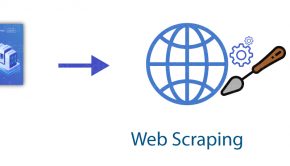Monitoring Your Competitors with Python: A Full Guide
Do you want to recognize the best tactics to do better than your competitors? If yes, then it is crucial to monitor your competitor’s website. It allows you to get data about potential opportunities or failures and track how you perform in the industry. And that process could be more versatile and precise with Python web scraping.
Python web scraping is an automated method of compiling from different websites into an understandable format and using it to monitor your competitors and improve your performance.
In this guide, we’ll walk you through how to monitor your competitors with python web scraping and some basics that you should know to move forward.
What is Python?
To move forward with monitoring your competitors with Python, it is important to understand more about this language. Python is designed to make scripting versatile, easy to learn, and user-friendly. Even if you don’t have any knowledge about another programming language, you can learn Python after using it two or three times. You can monitor your competitor’s website with this programming language easily. However, if you are not sure about it, prefer hiring an expert to get this work done.
Through Python, you can do scraping websites following any method you like. Even though the website’s information is not structured, you can collect that unstructured data and store it in the structural form with python web scraping.
Why is Python the best tool for competitor monitoring?
- Python offers many libraries such as Pandas, Numpy, and more. These libraries offer various uses, and users can pick the best one depending on methods and functions. This makes it suitable for many web crawling and data manipulation purposes.
- Python is an easy and less confusing programming language with no semicolons or “{}” braces.
- Variables in Python are easy to use, time-saving, and fast as you don’t have to define data types for variables and can use them wherever needed.
- Python Web Scraping itself is a time-saving process as you don’t have to write long codes. Writing small codes also solves the task.
- Python syntax is easy to learn and understandable, which makes it user-friendly.
How to do competitor monitoring with Python Web Scraping method?
Step 1:
Find the competitor website URL that you want to monitor or scrape.
Step 2:
Inspect the website page.
The URL is nested with tags and required to be inspected carefully and tag the data for scraping purposes. On the website page, right-click on “Element” and select “Inspect.” From the inspect tab, you can check the “Browser Inspector Box.”
Step 3:
Select the data for extracting
Step 4:
Write Python code
To start writing code, open the terminal in Ubuntu and type my file “web-s.” So now you have written code, and you have to extract the data from the website. The extracted data is nested in <div> tags. So, find them, extract data, and store it.
Step 5:
Run the code to extract data
Run the code using the command “python web-s.py.”
Step 6:
Store data in the required format and monitor it
Store the data in a required format. And monitor it to understand what your competitors are doing.
Python Web Scraping can be done using three frameworks
- Scrapy: It is a high-level scraping framework to analyze the competitor’s website and extract structural data from it.
- Beautiful Soap: It is another Python package that supports XML and HTML documents and creates a tree filled with phrases that make the extraction process easier.
- Selenium: It is a web testing library that eases down and automates browser-related activities.
Conclusion
With Python Web scraping, the hustle of monitoring competitors is solved. Just have a little knowledge of Python Script, Scrapy, Scrapy Cloud, and basic programming, and you are good to go. Now you are ready to analyze your competitors and improve your performance.
















